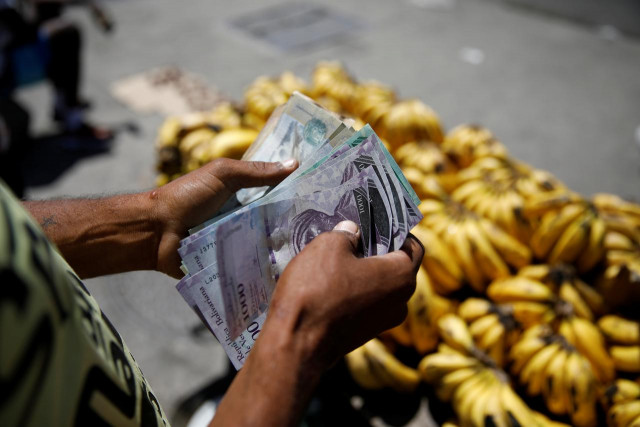Floods fuel 'back-breaking' food inflation
Finance Minister Miftah Ismail said the price of onions had shot up by more than five times

Catastrophic monsoon floods in Pakistan have sent food prices skyrocketing, putting many staples out of the reach of the poor as the cash-strapped nation battles shortages.
The floods have submerged a third of the country, killing more than 1,100 people and affecting over 33 million.
Recovery could cost more than $10 billion, according to the planning minister.
The rains -- which began in June, and whose unusual intensity has been blamed on climate change -- have also damaged vast swathes of rich agricultural land and crops. Parts of the mountainous north and breadbasket south have been cut off because roads and bridges have been washed away.
"Things are so expensive because of this flood that we can't buy anything," said Zahida Bibi, who had come to a market in the central city of Lahore to get vegetables for dinner.
She told AFP she had to forego some items on her shopping list because inflation had put them out of reach.
"What can we do? We don't make enough money to buy things at such high prices."
Onions and tomatoes -- common ingredients in most Pakistani meals -- have been affected the most.
The prices of both had increased by 40 percent, the Pakistan Bureau of Statistics said Friday.
But on Monday, Finance Minister Miftah Ismail said the price of onions had shot up by more than five times, and that the government was trying to quickly implement policies to stabilise food prices -- including importing from arch-rival India.
"We need to consider getting some vegetables over the land border," he told broadcaster Geo News.
"We have to do it because of the kind of prices and shortages we are experiencing... Inflation has broken people's backs."
Relief and desperation in Pakistan's makeshift flood camps
Makeshift camps have sprung up all over Pakistan -- in schools, along motorways and at military bases -- to give shelter to millions of displaced flood victims.
But the relief at finding safety can turn to desperation for many.
In the northwestern town of Nowshera, a technical college was turned into a shelter for up to 2,500 flood victims, who sweltered in the summer heat with sporadic food aid and little access to water for bathing.
"We have been only eating rice for the past three days," 60-year-old Malang Jan told AFP.
"I never thought that one day we will have to live like this. We have lost our heaven and are now forced to live a miserable life."
Jan's family were rescued by boat when his home was submerged in the floods that have swamped a third of the country, killing more than 1,100 people and affecting tens of millions more.
The college gardens are lined with tents -- the classrooms are filled with the families who arrived first and grabbed the chance for privacy.
Others rest shoulder-to-shoulder in corridors with their meagre bundles of belongings.
Goats and chickens salvaged from the rising water graze in the campus courtyard.
The camp of 2,500 is managed by various charities, political parties and administrative officials overwhelmed by the scale of the disaster.
Volunteers hand out tents, mattresses, water, daal and naan.
"It's a situation of panic," said Mushfiq ur Rehman, a district court official who stepped in to oversee food delivery for the local administration.
"There is enough food, but people are getting desperate because they don't trust if they will get a meal again or not."


















COMMENTS
Comments are moderated and generally will be posted if they are on-topic and not abusive.
For more information, please see our Comments FAQ